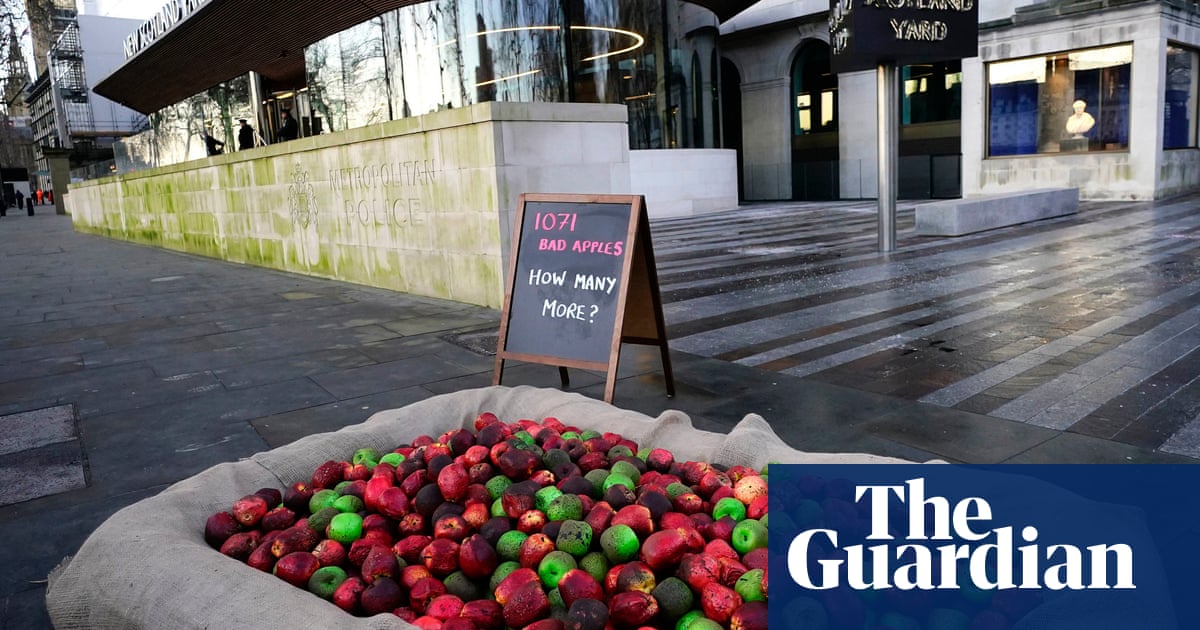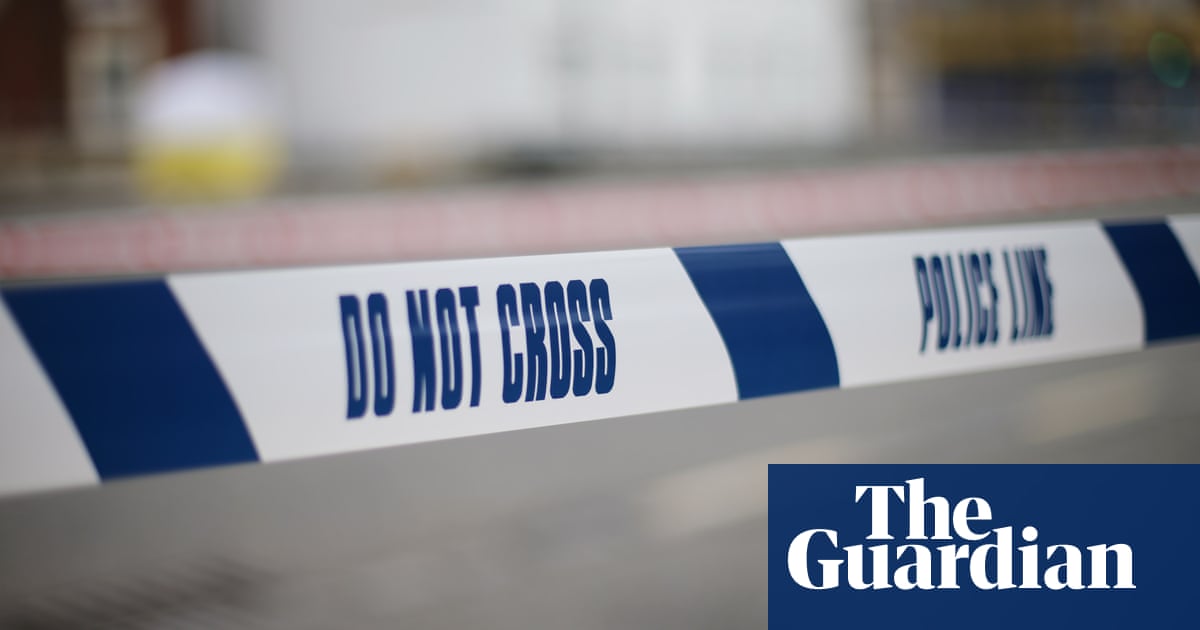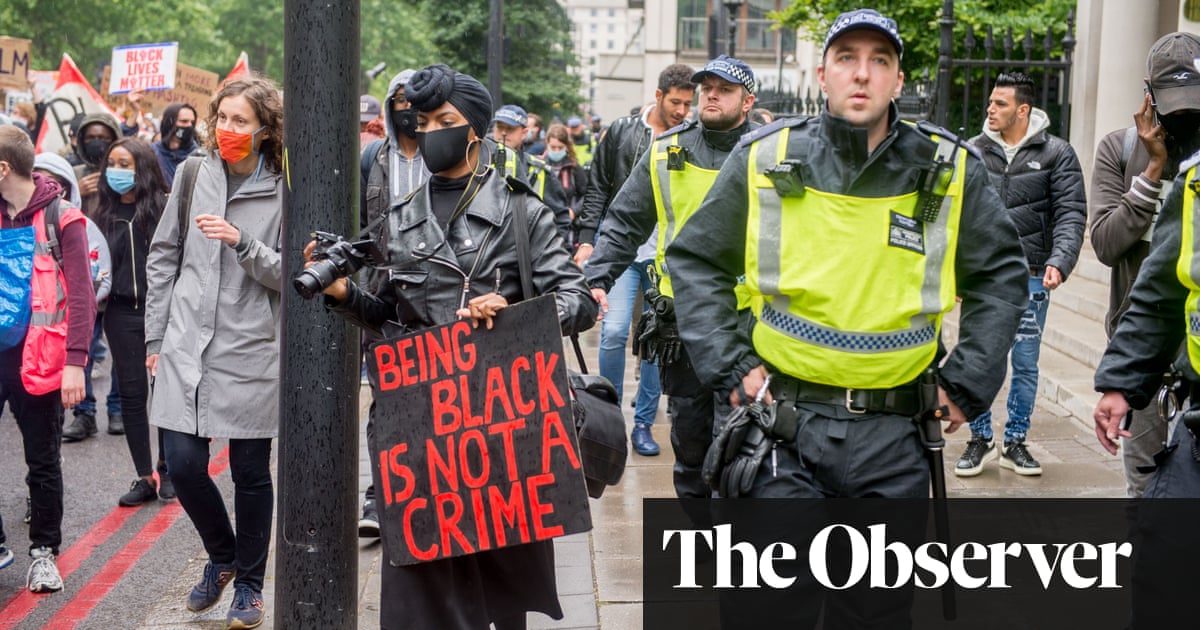
Government-funded researchers have uncovered “striking” evidence that rape myths – such as the belief that a woman’s behaviour plays a part in her rape – are believed by police officers investigating allegations of the crime.
A study of specialist rape and sexual offences officers in one large police force gives a rare snapshot into attitudes which researchers warn could be contributing to the 1.6% charge rate in rape cases in England and Wales.
One senior officer, who expressed concern at the existence of rape myths in their force, told academics: “We massively pre-judge the credibility of the victim. We investigate the victim more than the offence itself.”
It was revealed this week that the Metropolitan police officer David Carrick waged a campaign of terror against women for two decades. Afterwards the Met commissioner, Sir Mark Rowley, promised changes would be made “at speed”. Launching a “turnaround plan” to improve standards in the force on Friday, Rowley said he was “determined to win back Londoners’ trust” after Carrick’s “appalling criminality”.
On Friday the women’s charity Refuge put 1,071 plastic “bad apples” outside the Metropolitan police’s headquarters at New Scotland Yard, to mark the 1,071 officers and staff members in the Met being investigated over allegations of violence against women and girls.
Experts have said more predators within forces are now likely to be exposed after the National Police Chiefs’ Council (NPCC) told all chief constables to check their officers against national databases for misogyny and predatory behaviour.
“We’re going to see a whole series of new cases involving police officers who have transgressed in the most dreadful ways and preyed on vulnerable victims,” said the former police watchdog Zoë Billingham. “The situation is going to get worse before it gets better.”
Police areas were examined as part Operation Soteria Bluestone – a Home Office-funded programme aiming to tackle a catastrophic fall in rape prosecutions in England and Wales.
The study, published in the International Review of Victimology, was based on 17 in-depth interviews conducted in England at the end of 2021 as part of the work of Operation Soteria Bluestone but not included in its year one report. It gave “unique insight” into officers’ unvarnished opinions, the authors said.
Researchers from the study said it was “of considerable concern” that some officers did not know what rape myths were. Of those who did, many said they did not affect investigations. But the report found almost all officers interviewed “later proceeded to display various such myths”.
One senior officer was told detectives didn’t need to be educated on rape myths. They concluded: “And actually, you know, you can almost start going: ‘Oh my God, no wonder we got problems’.”
It also found evidence of victim-blaming, particularly in relation to sex workers. One officer said: “I suppose that is always going to have an impact on the way you think … you know, they’re in these situations because of the job that they do.” The authors said that while the rape myths demonstrated in the study “are not unique […] what is striking is that they were held by officers specifically working on [rape]”.
Betsy Stanko, who is not one of the study’s authors but is the academic co-lead for Soteria Bluestone and wrote its year one report, said the findings were not unique to the unnamed force, but had been found “across the board” in the police areas that were examined as part of Operation Soteria Bluestone.
“The lack of substantive specialist knowledge was so lacking that they are often basically drawing on common-sense justifications, founded in myths about victims which exist in society today,” Stanko said.
She argued that Carrick’s horrific crimes – which make him one of the worst sex offenders in modern history – brutally demonstrated the need for more transparency. “The police have been rocked to the core, and they just can’t hide any more from accountability,” Stanko said.
“Soteria has laid out the state of how it is now – and if it’s a dismal picture, then that’s where you have to start. Officers we have met have accepted the state of play and are working to change it.”
She said there was hope, and highlighted Avon and Somerset, where the charge rate for rape has tripled, from 3% to 10%.
The damning year one report from Soteria Bluestone exposed persistent failings in the criminal justice system, including a failure to track repeat suspects, “explicit victim-blaming” and botched investigations. It found that among the victims potentially seen as not credible were “those who made repeat/multiple allegations, sex workers, those with mental health or substance abuse issues, intoxicated victims, victims who give ‘inconsistent’ or ‘incomplete’ accounts, and victims who may have lied in the past (in almost any area of their life)”.
One officer said: “A large proportion of our cases are people suffering with mental health issues and also kind of repeat allegers.” In another force there was a belief among senior management that “the system is clogged up with false allegations”.
Researchers from the more recent study stated that “genuinely false allegations of rape are made in a very small minority of cases” - pointing to research that puts the figure at 3%.
Researchers also found a dire lack of training for specialist officers about rape, with no plans to implement it in the force they examined. One officer said: “Rape is a serious investigation. So … why are DCs [detective constables] not getting any training to investigate rape?”
Amelia Handy, the head of policy at Rape Crisis England and Wales, said rape myths held by officers let “perpetrators off the hook” and fed into a broader rape culture. “In recent days we have been reminded of how rape culture in policing has allowed sexually violent police officers off the hook time and time again,” she said.
The study’s authors recommend screening officers for rape myths before they join specialist sexual offences teams, and regular training because “at present, these beliefs remain unchallenged and unaddressed” with officers “not meeting the needs of victims of sexual violence, nor punishing those who commit sexual violence”.
On Friday, a Home Office report found rape victims were having significant amounts of their personal records “unnecessarily requested” by police, four years after the Guardian revealed police were demanding almost unfettered access. The government has said it will introduce legislation on police requests for access to personal data from third parties.
“This […] will support the police to ensure all requests are completely necessary, and that we can protect victims and deliver justice more quickly,” said Sarah Dines, the minister for safeguarding.












